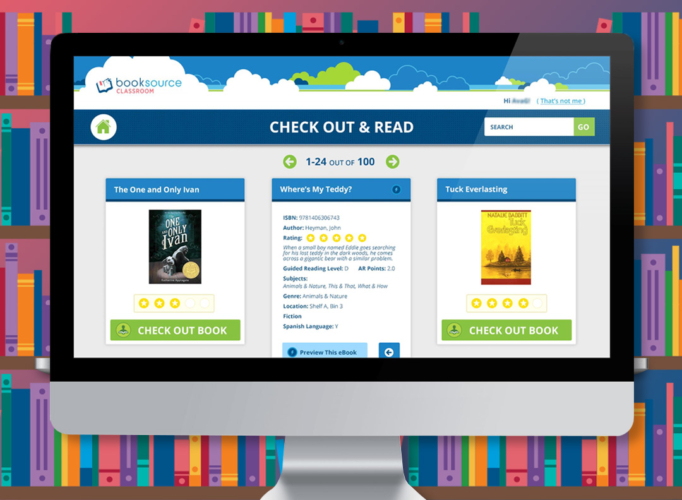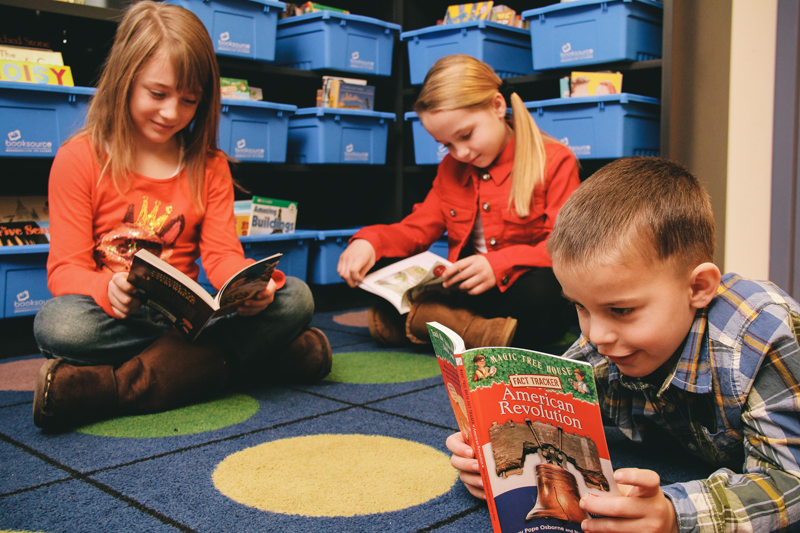Research validates what we already know, that time spent reading improves reading achievement (Anderson, 1985; Anderson, Wilson, & Fielding, 1988; Fielding & Pearson, 1994; Taylor, Frye, & Maruyama, 1990). It sounds simple, but I’ve never had a class in twenty-four years where students would just go get a book and read on the first day of school.
I think this is what frustrates teachers who want to implement independent reading as the primary focus of the day, but are fearful of fake reading, sleeping, bathroom trips or chaos. Independent reading needs to be taught and nourished with a gentle hand—and these alternatives to reading logs can help.
Authentic Alternatives to Reading Logs
A component of independent reading success is accountability! But it’s not just students who need to be held accountable. We teachers, too, must be accountable! We need to be accountable for making this part of the day non-negotiable. Rain or shine, fire drill or assembly…independent reading must go on! If we are to impress upon our students that reading creates success, then we must prioritized actual reading. It should be the constant. We teachers must also hold ourselves accountable for conferring with our students, every day. I’ve noticed throughout my career that my energy subsides after lunch—and conferring takes focus and energy. I noticed that if independent reading is in the afternoon, not only will the students be tired, but so will I. Mid-morning was my sweet spot.
Students, too, must be held accountable for independent reading. But, as I once read on a blog, proving to me that they read a book will not inspire or motivate students to keep reading. Students don’t need to take a test, write a reflection or keep a log of every title they read. Here is a list of some different and authentic ways to hold students accountable for independent reading. I think you’re going to enjoy these ideas for alternatives to reading logs.
Reading Log Alternative #1: Talk
People talk about books they read. We share the stories and emotions of the characters and make connections to our own lives. Students will want to do this too! Students will talk with you during reading conferences, but they should also be encouraged to talk with each other. They can turn and talk with a partner or talk with the group. I’ve used microphones in the past, and together with a share chair, they create a fun sharing stage.
Reading Log Alternative #2: Status
I’ve adapted Nancie Atwell’s writing workshop status of the class for independent reading. While it is more difficult with students reading picture books, taking a status check takes just a couple of minutes. On a checklist, as you call of each student’s name, they can offer you the title and page number of what they are reading. Chapter books will often take more time, so it isn’t necessary to write a new title each day. It also gives students an opportunity to listen to what their classmates are reading.
Reading Log Alternative #3: Booksource Classroom

Booksource Classroom , a free online classroom library management tool, offers a student check-out system that keeps tracks of all the books students read, the dates and leveling information. It will even graph this for you! At a glance, students can view their progress with pride and teachers can keep track of the titles all students are reading.
Create a free Booksource Classroom account and start tracking today!
Reading Log Alternative #4: Reviews
With online shopping at full speed, what would we do without reviews? Creating a simple review gives other students an inside look at what their peers think about a book. Similar to a reading response, this is practical and authentic. Reviews can be published on a class website or Booksource Classroom, so others can take a peek before checking out their latest book.
Reading Log Alternative #5: Tableaux
A tableau is a freeze frame shot of a scene in a movie, play or book. Students reading the same book can create a tableau demonstrating the meaning of a section of the book. Each person must represent a character or prop in the story. It’s also fun if you suddenly announce, “PLAY”! Students then need to move the scene forward until you, or someone, yells, “CUT.”
Reading Log Alternative #6: Group Discussions
Group discussions can be intimidating. If the purpose of the discussion is accountability, then how do you hold students accountable for talking on topic? Color Me Communications are the answer! This technique can be used with students of all ages. Each group of 4 or 5 students shares one paper, with each student in the group using a different color. You can use bingo daubers, crayons, markers or even stickers. Each time a group member shares, they add their color. The goal is to have everyone equally contribute.
Encouraging others helps the colors form a pattern, so at a glance, you can see how the discussion is going. I’ve also used small bingo boards with chart stickers and called it Discussion Dots. This works incredibly well!
Reading Log Alternative #7: Sketch Something
Sketch Something gives students an opportunity to sketch something that represents the last chapter or page that they’ve read. This is less threatening and less prove-to-me than a log or reflection. Students have 3 minutes to sketch, using only a pencil, and three minutes to have their neighbor decipher the sketch. The best part of the activity is the discussion that comes out as they talk about the sketch.
Reading Log Alternative #8: Further Inquiry
When students show an interest in a subject, take advantage of this to guide them towards additional research. Research and producing a digital book trailer, website or argument supporting their inquiry gives them opportunities to share with others. There are numerous free templates available online. Check out Animoto for creating digital slideshows, Little Bird Tales for recording students’ voices, Voice Thread for a combination of the two and Wix for designing free websites.
What do you use as alternatives to reading logs to hold students accountable for their independent reading? Please, share your ideas!








Thanks for sharing, Kelli!
Teachers know that independent reading is essential, but most don’t know how to go about implementing the time, especially with the expectation of grades (from parents and admins). These are do-able and can be implemented in any classroom, any grade level.
Kelli, Thank you for sharing such easy-to-do, but solid ideas about independent reading & accountability. These ideas help teachers make this important daily routine easier to implement. Promoting the love of reading is what we do at Bree’s Book Bus on a daily basis too!
Wonderful suggestions. I can’t wait to try them out in my classroom.
I love all of your ideas and will implement them all, rotating each week so things stay exciting.
The Four Agreements is a wonderful book! Thanks for your ideas. This is a challenge, but worth it.
Thanks! Be sure to share ideas you have, too. What works and what didn’t? I don’t think we could ever have too long of a list.
I am looking forward to trying some of these in book clubs! Thanks!
We’re glad you like these ideas, Patricia. Let us know how they work for your students!
Love the sketch something approach. I’m going to definitely try it the next time I’m reading with my son. Thanks for the tips!
This site was… how do I say it? Relevant!!
Finally I’ve found something which helped me. Many thanks!